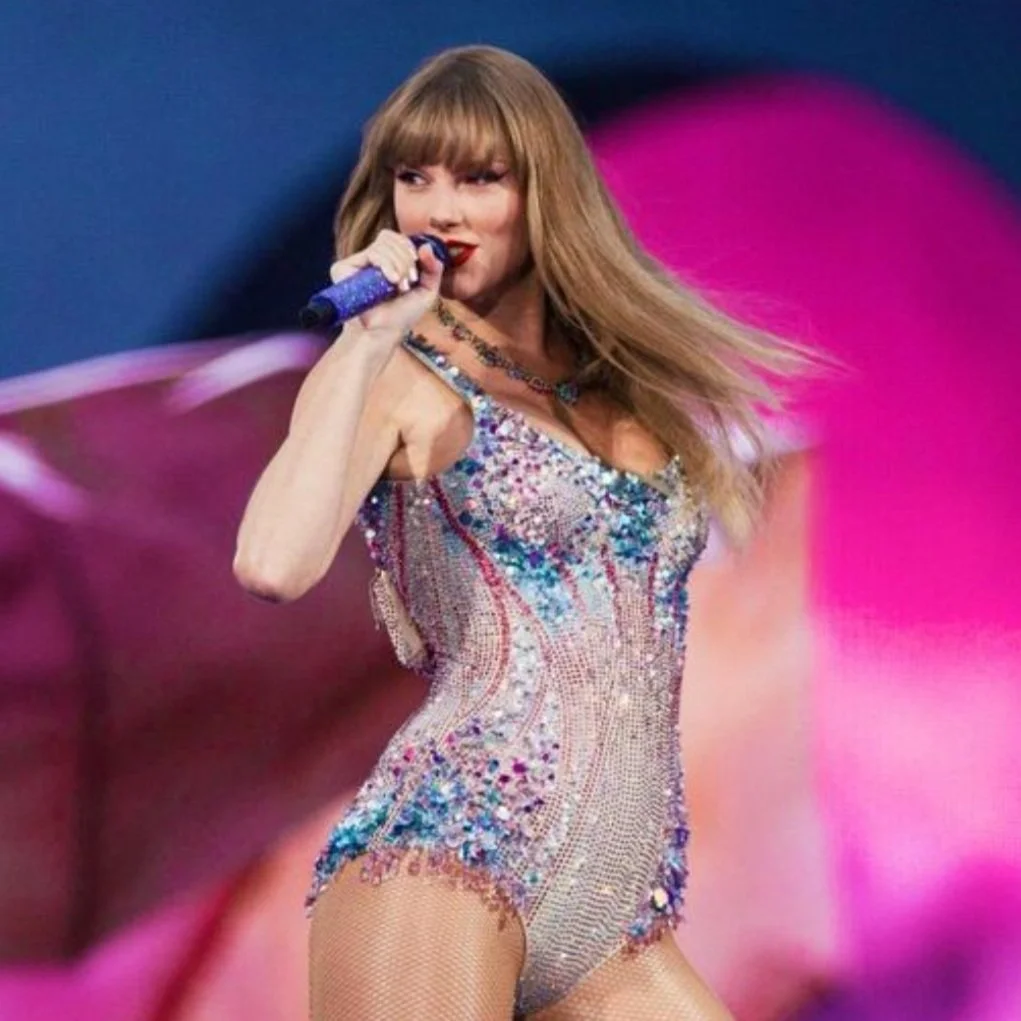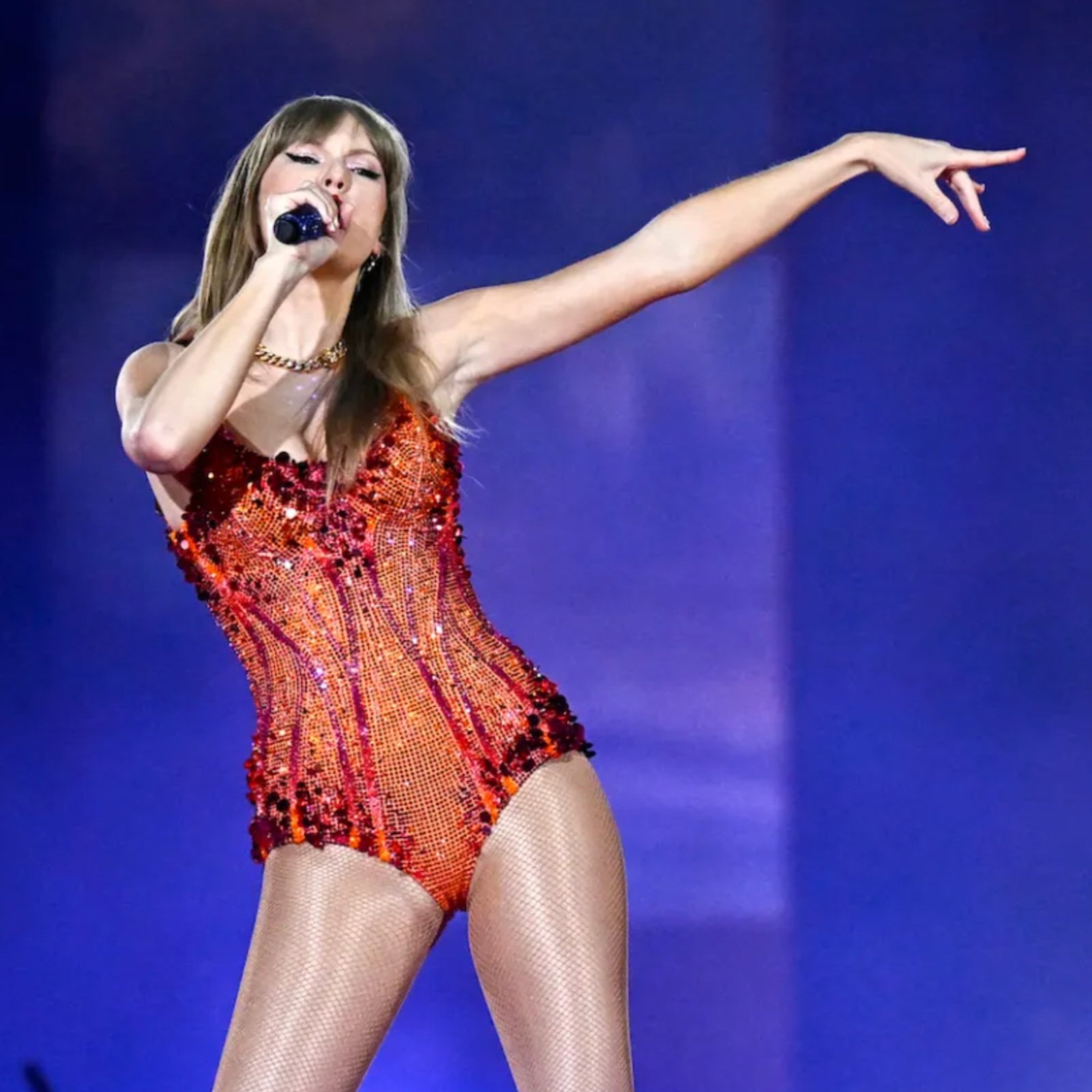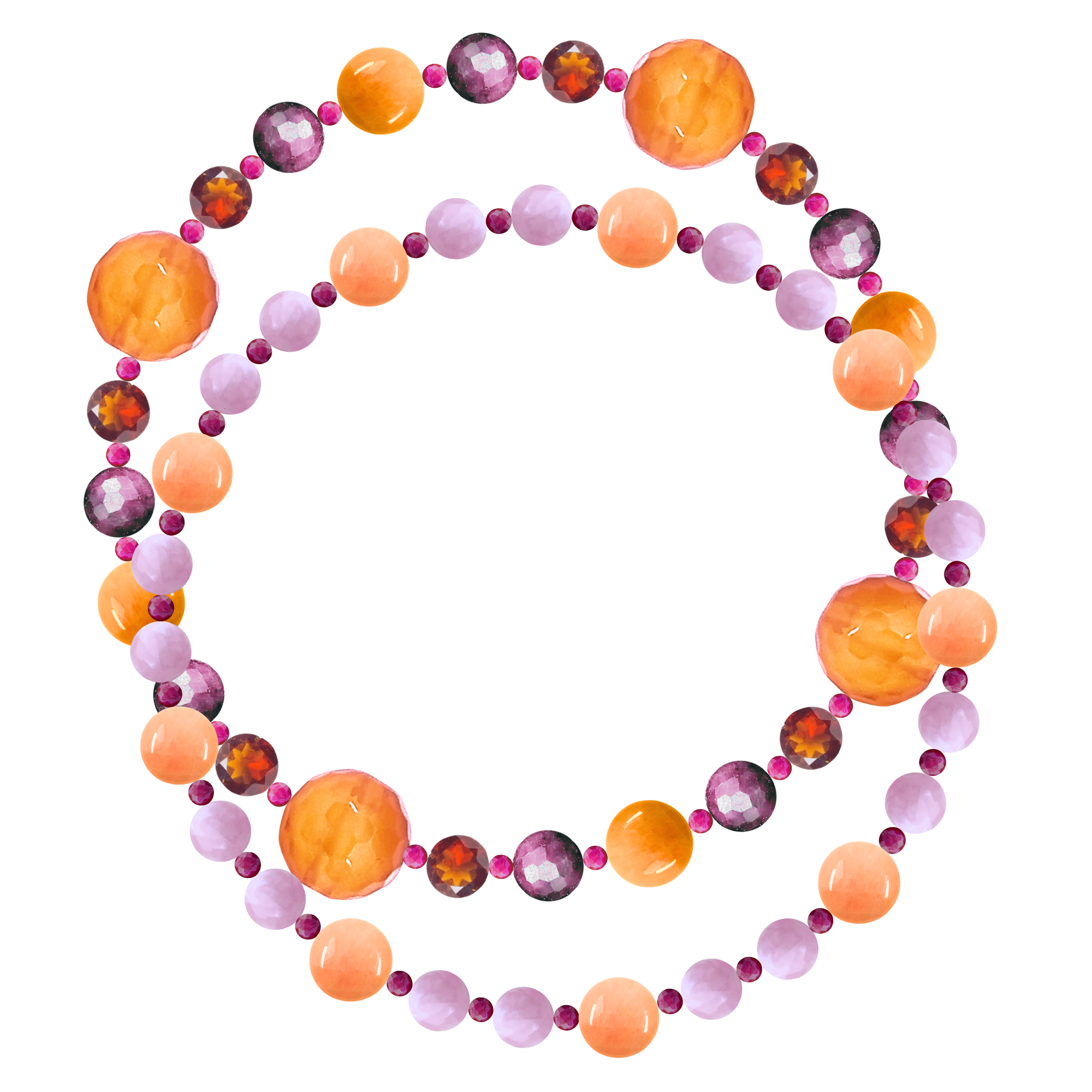Lover II
This Lover design is made of smooth Amethyst, richly-hued Rubies, rare Tanzanite, gleaming Kunzite & soothing Rose Quartz to match the iconic Versace bodysuit Taylor wears on stage.
Amethyst: approx 6 ct. total
Kunzite: approx 5 ct. total
Rose Quartz: approx .75 ct. total
Rubies: approx 3 ct. total
Tanzanite: approx 5 ct. total
Handmade in the United State
The meaning and history of the gems in each of our bracelets align with the themes of each of Taylor’s sets. The stones in this bracelet are associated with love or with calming the wild emotions love can cause.
AMETHYST
Leonardo Da Vinci believed amethyst could ward off negative thoughts. Historically, amethyst has been a symbol of unity, and is thought to evoke serenity and calmness in those who wear it.
KUNZITE
According to metaphysical beliefs, kunzite is a stone deeply connected to the heart and love. A joyful stone, kunzite opens and connects the heart with the mind, encouraging communion between the two. While wearing kunzite, it is thought you are better able to experience and reciprocate love.
ROSE QUARTZ
Rose quartz came to be known as the stone of love and reconciliation from the Greek myth about Aphrodite and Adonis. Today, rose quartz, often referred to as the "Heart Stone," symbolizes unconditional love and infinite peace, fostering deep inner healing and self-love.
RUBY
For centuries, rubies have been a talisman of passion, protection and prosperity. Rubies are believed to encourage the wearer to be present in the moment, a perfect sentiment for the Eras Tour. And like this opening set, rubies have always been associated with love, especially passionate young love.
TANZANITE
Rarer than diamonds, tanzanite was discovered just 50 years ago. As a beacon of serenity, tanzanite instills confidence, helps overcome anxieties, and promotes calmness. Another popular belief is that--because it takes intense heat to bring forth this stone's full potential--it also has the ability to bring forth the wearers' full potential as they experience life’s challenges.
This Lover design is made of smooth Amethyst, richly-hued Rubies, rare Tanzanite, gleaming Kunzite & soothing Rose Quartz to match the iconic Versace bodysuit Taylor wears on stage.
Amethyst: approx 6 ct. total
Kunzite: approx 5 ct. total
Rose Quartz: approx .75 ct. total
Rubies: approx 3 ct. total
Tanzanite: approx 5 ct. total
Handmade in the United State
The meaning and history of the gems in each of our bracelets align with the themes of each of Taylor’s sets. The stones in this bracelet are associated with love or with calming the wild emotions love can cause.
AMETHYST
Leonardo Da Vinci believed amethyst could ward off negative thoughts. Historically, amethyst has been a symbol of unity, and is thought to evoke serenity and calmness in those who wear it.
KUNZITE
According to metaphysical beliefs, kunzite is a stone deeply connected to the heart and love. A joyful stone, kunzite opens and connects the heart with the mind, encouraging communion between the two. While wearing kunzite, it is thought you are better able to experience and reciprocate love.
ROSE QUARTZ
Rose quartz came to be known as the stone of love and reconciliation from the Greek myth about Aphrodite and Adonis. Today, rose quartz, often referred to as the "Heart Stone," symbolizes unconditional love and infinite peace, fostering deep inner healing and self-love.
RUBY
For centuries, rubies have been a talisman of passion, protection and prosperity. Rubies are believed to encourage the wearer to be present in the moment, a perfect sentiment for the Eras Tour. And like this opening set, rubies have always been associated with love, especially passionate young love.
TANZANITE
Rarer than diamonds, tanzanite was discovered just 50 years ago. As a beacon of serenity, tanzanite instills confidence, helps overcome anxieties, and promotes calmness. Another popular belief is that--because it takes intense heat to bring forth this stone's full potential--it also has the ability to bring forth the wearers' full potential as they experience life’s challenges.
This Lover design is made of smooth Amethyst, richly-hued Rubies, rare Tanzanite, gleaming Kunzite & soothing Rose Quartz to match the iconic Versace bodysuit Taylor wears on stage.
Amethyst: approx 6 ct. total
Kunzite: approx 5 ct. total
Rose Quartz: approx .75 ct. total
Rubies: approx 3 ct. total
Tanzanite: approx 5 ct. total
Handmade in the United State
The meaning and history of the gems in each of our bracelets align with the themes of each of Taylor’s sets. The stones in this bracelet are associated with love or with calming the wild emotions love can cause.
AMETHYST
Leonardo Da Vinci believed amethyst could ward off negative thoughts. Historically, amethyst has been a symbol of unity, and is thought to evoke serenity and calmness in those who wear it.
KUNZITE
According to metaphysical beliefs, kunzite is a stone deeply connected to the heart and love. A joyful stone, kunzite opens and connects the heart with the mind, encouraging communion between the two. While wearing kunzite, it is thought you are better able to experience and reciprocate love.
ROSE QUARTZ
Rose quartz came to be known as the stone of love and reconciliation from the Greek myth about Aphrodite and Adonis. Today, rose quartz, often referred to as the "Heart Stone," symbolizes unconditional love and infinite peace, fostering deep inner healing and self-love.
RUBY
For centuries, rubies have been a talisman of passion, protection and prosperity. Rubies are believed to encourage the wearer to be present in the moment, a perfect sentiment for the Eras Tour. And like this opening set, rubies have always been associated with love, especially passionate young love.
TANZANITE
Rarer than diamonds, tanzanite was discovered just 50 years ago. As a beacon of serenity, tanzanite instills confidence, helps overcome anxieties, and promotes calmness. Another popular belief is that--because it takes intense heat to bring forth this stone's full potential--it also has the ability to bring forth the wearers' full potential as they experience life’s challenges.















